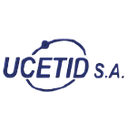Executive Secretary

XI Conferencia Científica Internacional sobre Desarrollo Agropecuario y Sostenibilidad
AGROCENTRO 2025
XVI Simposio de Sanidad Vegetal
Resumen
El uso extensivo de bioinoculantes como Rhizobium es fundamental para incrementar los rendimientos agrícolas mediante prácticas sostenibles; sin embargo, su aplicación masiva en altas concentraciones requiere evaluaciones ecotoxicológicas rigurosas en organismos representativos de los ecosistemas. Este estudio evaluó la toxicidad aguda del bioproducto Fertiriz (Rhizobium Hg) en especies bioindicadoras de ambientes acuáticos y terrestres, de diferentes niveles tróficos. Basado en protocolos de la Agencia de Protección Ambiental de Estados Unidos para plaguicidas microbianos, se expusieron Artemia sp. (crustáceo), Poecilia reticulata (pez), Physa acuta (molusco) y Eisenia foetida (lombriz) a concentraciones elevadas del producto, donde se midieron efectos letales y subletales. Los resultados indicaron ausencia de toxicidad y patogenicidad en todas las especies evaluadas. La no manifestación de efectos agudos en organismos acuáticos y terrestres sugiere que las concentraciones de aplicación agrícola de Fertiriz poseen amplios márgenes de seguridad ecotoxicológica. Se concluye que este bioproducto presenta bajo riesgo ambiental agudo, respaldando su uso seguro en sistemas de producción sostenible.
Abstract
The extensive use of bioinoculants like Rhizobium is key for sustainable agriculture but requires prior ecotoxicological assessment on ecosystems before large-scale applications. This study evaluated the acute toxicity of the bioproduct Fertiriz (Rhizobium Hg) on bioindicator species from aquatic and terrestrial environments across multiple trophic levels. Following EPA protocols for microbial pesticides, Artemia sp. (crustacean), Poecilia reticulata (fish), Physa acuta (mollusk), and Eisenia foetida (earthworm) were exposed to high concentrations of Fertiriz, with lethal and sublethal effects assessed. Results showed no toxicity or pathogenicity in any species. The absence of acute effects in aquatic and terrestrial organisms indicates wide safety margins at agricultural application rates. Fertiriz poses low acute ecotoxicological risk, validating its safe use in sustainable farming.
Sobre el ponente

MsC. Osmany Marrero Chang

Discussion

 Oro
Oro
 Oro
Oro
 Oro
Oro
 Oro
Oro
 Plata
Plata